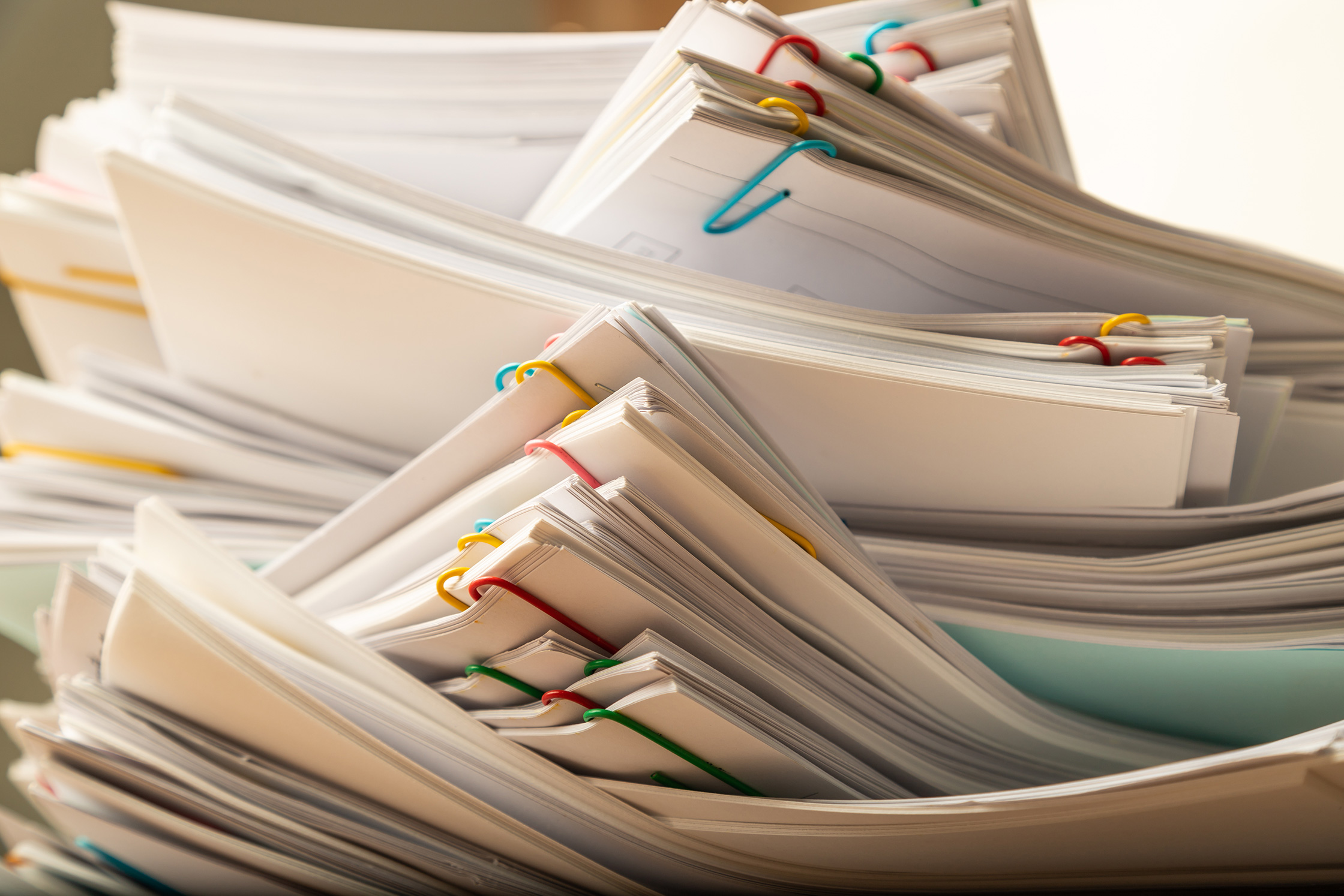How Long To Keep Estate Paperwork

When settling an estate or managing the affairs of a deceased loved one, keeping track of important documents is crucial. Estate paperwork can include everything from wills and trusts to tax returns and property deeds. Understanding how long to keep estate paperwork ensures you remain compliant with legal requirements and helps keep your affairs organized during a time of transition. Here's a detailed guide on managing estate documents, including the ideal retention periods.
Types of Estate Paperwork

Before delving into the retention periods, let’s outline the common types of estate documents:
- Wills and Trusts: Documents that detail how assets are to be distributed after death.
- Death Certificates: Necessary for numerous legal and financial proceedings following a death.
- Tax Returns: Including estate tax, income tax, and gift tax filings.
- Property Deeds: Documentation proving ownership of real property.
- Life Insurance Policies: Information on policies and beneficiary information.
- Financial Statements: Bank statements, investment account statements, and creditor records.

Retention Periods for Estate Documents

The duration for which you need to retain estate paperwork can vary, depending on the type of document and your jurisdiction:
| Document | Retention Period |
|---|---|
| Wills and Trusts | Permanently or until the estate is fully distributed. |
| Death Certificates | At least 10 years for legal and administrative purposes. |
| Tax Returns | 7 years, in case of an audit, or permanently for estate and gift tax returns. |
| Property Deeds | Indefinitely if you still own the property; otherwise, for 7 years after sale. |
| Life Insurance Policies | Until policy matures or is canceled, then retain beneficiary information. |
| Financial Statements | 7 years for most, but indefinitely for investments with capital gains or losses. |

Managing Estate Documents Digitally

As we move towards a digital world, consider the following for digital storage:
- Security: Ensure all digital records are encrypted and accessible only to authorized individuals.
- Backups: Maintain multiple backups in secure locations, both local and cloud-based.
- Organization: Use cloud services or document management systems to categorize and search documents easily.
- Access: Provide instructions for accessing digital documents to heirs or executors.
📅 Note: Digital documents can sometimes be lost due to data breaches, technical failures, or changing service providers. Always ensure you have physical copies of critical documents as backups.
Legal Considerations

Here are some legal issues to keep in mind:
- Tax Audits: Retain records that could be subject to audits, such as tax returns, for the maximum audit period which is generally 7 years.
- Inheritance Disputes: If there is a likelihood of inheritance disputes, keep documents permanently or until a reasonable period after any potential disputes are settled.
- Jurisdiction Specifics: Some states or countries might have different retention requirements, especially for real property or business-related documents.
Organization Tips for Estate Paperwork

Effective organization can prevent future headaches:
- Create a Centralized System: Keep all estate documents in one centralized location, whether physical or digital.
- Label Clearly: Mark documents with clear labels indicating what they are and the date they were last updated.
- Document Index: Maintain an index or inventory of your estate documents for easy reference.
- Regular Updates: Periodically review and update your estate documents to ensure they are current and relevant.
After you've taken care of these steps and ensured all paperwork is in order, here are a few important points to keep in mind:
💡 Note: While we've provided general guidelines, laws and best practices can change. Always consult with a legal professional or financial advisor to align with the most current estate planning and tax regulations.
As we reach the end of our discussion on managing estate paperwork, it's vital to emphasize that these documents are not just pieces of paper but keys to fulfilling a person's last wishes and ensuring a smooth transition of assets. Whether you're an executor, beneficiary, or planning your estate, knowing how long to keep estate paperwork is fundamental for compliance, organization, and peace of mind. By following the guidelines outlined above, you can ensure that the necessary documentation is kept for the appropriate duration, avoiding legal pitfalls and streamlining the estate administration process. Remember, timely review and organization of estate documents can also provide clarity and support during emotional times.
What should I do if I lose important estate documents?

+
Try to obtain replacements or copies from professionals like your attorney, financial advisor, or insurance company. If these aren’t available, contact the issuing body for certified copies. Also, consider using document recovery services or archives if documents are recorded or registered.
Can estate paperwork be scanned and stored digitally to reduce physical storage?

+
Yes, estate paperwork can be scanned and stored digitally, but ensure you secure these files with encryption, maintain multiple backups, and have physical copies as a fail-safe.
Do I need to retain all estate paperwork forever?

+
Some documents, like wills and property deeds, should be retained indefinitely until all legal issues are resolved. Others, like financial statements, can often be disposed of after 7 years if no longer relevant or audit risk exists.
What if a document’s retention period differs from what was instructed?

+
Retain the document for the longer of the two periods suggested. Also, consult with your legal or financial advisor to determine if any special circumstances apply to your situation.



